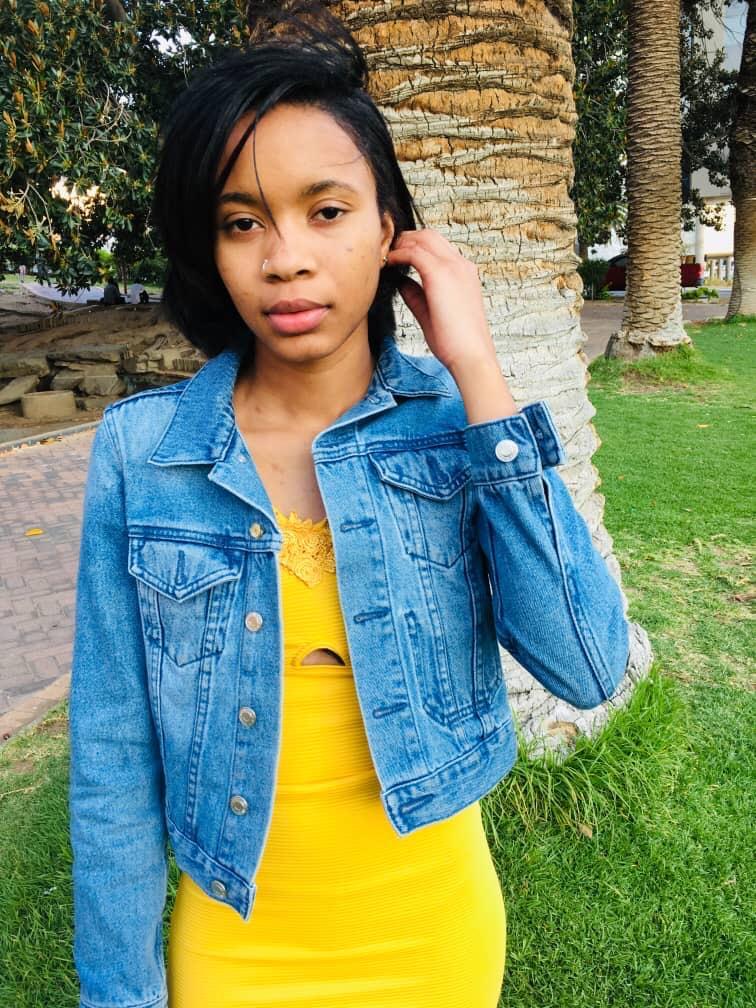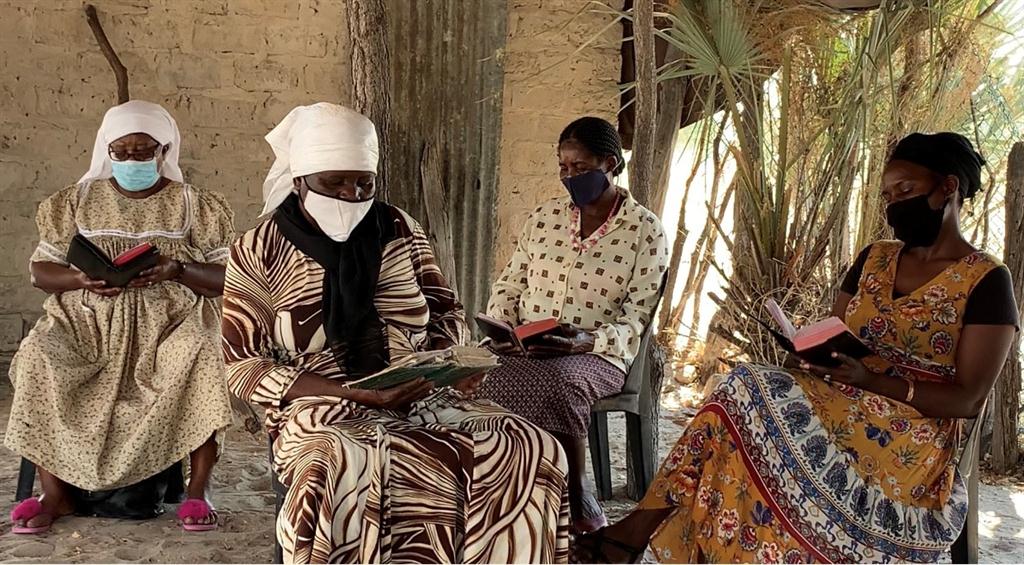Suicide and the signs we ignore
Esther Nanyanga talks about how the invisible illness of depression destroyed her daughter without the family noticing it.
TUYEIMO HAIDULA
ANKAMBO
Indian Sunday Erasmus (22) hanged herself at the family home in Ondangwa on Friday.
On Saturday, Nelago Thomas, also 22, hanged himself in his room at the same town.
In the Erongo Region, two more suicides were reported over the weekend. Silence Uwugaeb (13) hanged himself with his belt at his home in Mondesa on Saturday, while Rose Sirkka Frans (23) was found hanging in her room in Walvis Bay on Friday evening.
Namibia's suicide rate
These are not isolated cases. Last year Namibia had the fourth highest suicide rate in Africa and the 11th highest globally. Around the world suicide is the second leading cause of death among people aged between 15 and 29. The World Health Organisation estimates that a death by suicide occurs every 40 seconds, leading to an estimated 800 000 lost lives each year.
In Namibia it is estimated that about 22 in every 100 000 individuals kill themselves, compared to 11 individuals per 100 000 worldwide.
Promising life cut short
Esther Nanyanga, Indian's aunt and guardian, says the family never suspected that she was suicidal.
“Our daughter had so many plans. Never in a million years would I have thought suicide would cross her mind. She had always been a happy child, full of life and love. During lockdown she was going to come up with a name for her business, which has an Instagram page called @indiannahs_everything,” she recalls. Indian was in her third year of a four-year course at the University of Namibia, majoring in commerce. She was doing teaching practice at Nehale Senior Secondary School in the Oshana Region, which is different from teaching because it's done by education students to prepare them for when they graduate.
Nanyanga says she would always boast to her friends how Indian's teenage years had passed without a rebellious stage. She did notice a change when Indian came home for a break in June, but didn't think much of it.
“I thought she was now going through a stage like all teens go through, but hers very late, of course. She always put everyone's needs before her own. She was truly my bundle of joy.”
Nanyanga says one of her daughters told her Indian was crying on Thursday.
“I suggested that she come with me to town on Friday morning, hoping to use this chance to ask her what was troubling her, but she said one of the children was using her phone for e-learning. I felt like if I had a chance to talk to her, maybe I could have saved my ray of sunshine and this would not have happened,” she said.
Her elder sister, Duckie Samuel, said Indian told them not to leave out one of her favourite photos when they create a memorial programme to pay tribute to her.
“But because she was always cracking jokes, I didn't read too much into it and just told her that by the time she died I would probably have forgotten the photo she chose. Little did I know it would be sooner rather than later.
“She was just too bubbly. I really wouldn't have thought she was going through anything,” Samuel says.
Warning signs
Social worker Sofia Negonga, who works for the gender ministry, says odd remarks like Indian's about the photo are one of the signs that parents, guardians and friends should look out for. Suicidal people would make such a statement sound like a joke, but it's really a red warning light, she says.
Other signs to watch out for are aggressive behaviour, isolating or withdrawing themselves, or talking about killing themselves.
Dealing with suicide
Negonga says suicide is a traumatic event and families should seek professional help to deal with their grief.
Traditionally, people would come together to comfort one another and share the grief, but this is proving to be difficult during the coronavirus pandemic when gatherings of more than ten people are banned.
“It is important for society to maintain the support and strength for this family to enable it to review family events and developments that might negatively affect the family components. After the review, family reconstruction can be necessary with the help of a professional helper,” Negonga says.
Indian will be laid to rest on Saturday. A memorial service will be held in three stages to comply with the Covid-19 regulations: on Wednesday for her neighbours, on Thursday for her friends and on Friday for the family.
[email protected]
ANKAMBO
Indian Sunday Erasmus (22) hanged herself at the family home in Ondangwa on Friday.
On Saturday, Nelago Thomas, also 22, hanged himself in his room at the same town.
In the Erongo Region, two more suicides were reported over the weekend. Silence Uwugaeb (13) hanged himself with his belt at his home in Mondesa on Saturday, while Rose Sirkka Frans (23) was found hanging in her room in Walvis Bay on Friday evening.
Namibia's suicide rate
These are not isolated cases. Last year Namibia had the fourth highest suicide rate in Africa and the 11th highest globally. Around the world suicide is the second leading cause of death among people aged between 15 and 29. The World Health Organisation estimates that a death by suicide occurs every 40 seconds, leading to an estimated 800 000 lost lives each year.
In Namibia it is estimated that about 22 in every 100 000 individuals kill themselves, compared to 11 individuals per 100 000 worldwide.
Promising life cut short
Esther Nanyanga, Indian's aunt and guardian, says the family never suspected that she was suicidal.
“Our daughter had so many plans. Never in a million years would I have thought suicide would cross her mind. She had always been a happy child, full of life and love. During lockdown she was going to come up with a name for her business, which has an Instagram page called @indiannahs_everything,” she recalls. Indian was in her third year of a four-year course at the University of Namibia, majoring in commerce. She was doing teaching practice at Nehale Senior Secondary School in the Oshana Region, which is different from teaching because it's done by education students to prepare them for when they graduate.
Nanyanga says she would always boast to her friends how Indian's teenage years had passed without a rebellious stage. She did notice a change when Indian came home for a break in June, but didn't think much of it.
“I thought she was now going through a stage like all teens go through, but hers very late, of course. She always put everyone's needs before her own. She was truly my bundle of joy.”
Nanyanga says one of her daughters told her Indian was crying on Thursday.
“I suggested that she come with me to town on Friday morning, hoping to use this chance to ask her what was troubling her, but she said one of the children was using her phone for e-learning. I felt like if I had a chance to talk to her, maybe I could have saved my ray of sunshine and this would not have happened,” she said.
Her elder sister, Duckie Samuel, said Indian told them not to leave out one of her favourite photos when they create a memorial programme to pay tribute to her.
“But because she was always cracking jokes, I didn't read too much into it and just told her that by the time she died I would probably have forgotten the photo she chose. Little did I know it would be sooner rather than later.
“She was just too bubbly. I really wouldn't have thought she was going through anything,” Samuel says.
Warning signs
Social worker Sofia Negonga, who works for the gender ministry, says odd remarks like Indian's about the photo are one of the signs that parents, guardians and friends should look out for. Suicidal people would make such a statement sound like a joke, but it's really a red warning light, she says.
Other signs to watch out for are aggressive behaviour, isolating or withdrawing themselves, or talking about killing themselves.
Dealing with suicide
Negonga says suicide is a traumatic event and families should seek professional help to deal with their grief.
Traditionally, people would come together to comfort one another and share the grief, but this is proving to be difficult during the coronavirus pandemic when gatherings of more than ten people are banned.
“It is important for society to maintain the support and strength for this family to enable it to review family events and developments that might negatively affect the family components. After the review, family reconstruction can be necessary with the help of a professional helper,” Negonga says.
Indian will be laid to rest on Saturday. A memorial service will be held in three stages to comply with the Covid-19 regulations: on Wednesday for her neighbours, on Thursday for her friends and on Friday for the family.
[email protected]






Comments
Namibian Sun
No comments have been left on this article